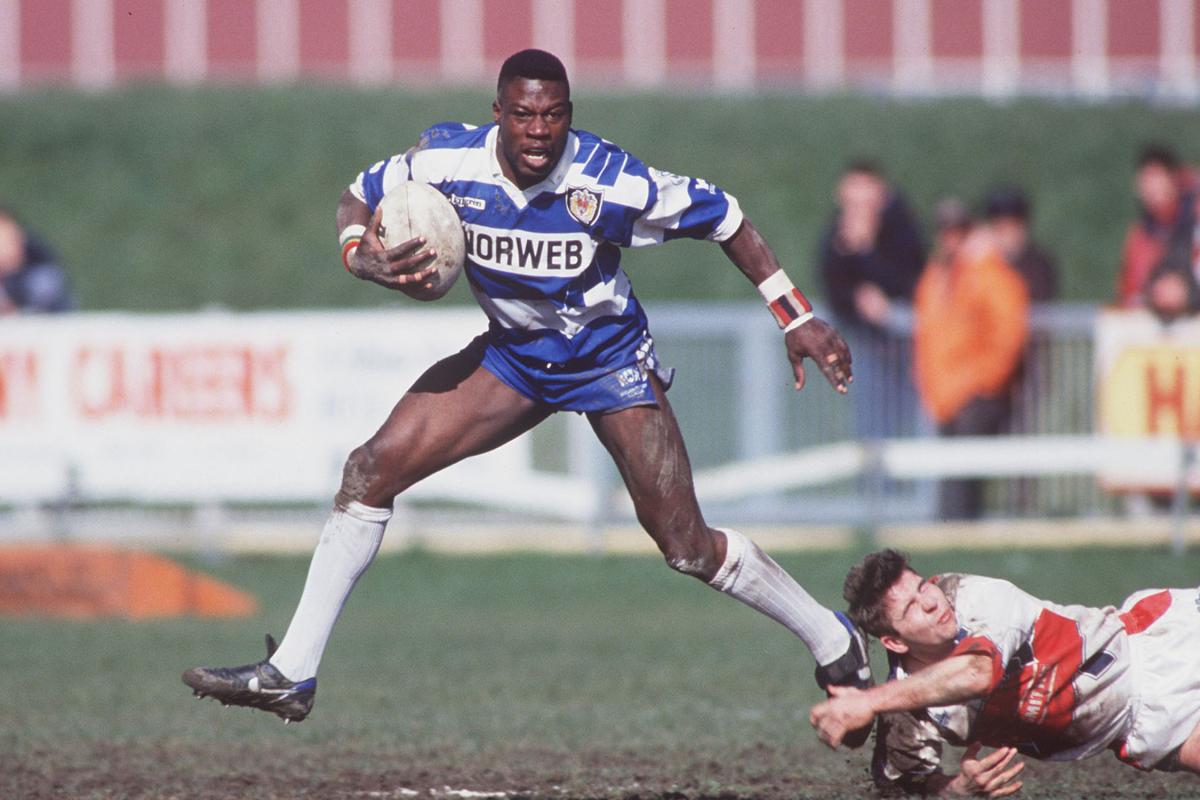As the rise of the Black Lives Matter movement forced people to reflect and ask themselves if it was enough to merely not be racist, but whether they needed to be actively anti-racist, some potentially negative and harmful institiutions were reappraised.
One of them was the singing of Swing Low Sweet Chariot at England Rugby matches. A song who’s roots (unbeknownst to many) are firmly placed in American slavery in the 19th Century and made Rugby player Maro Itoji openly say that the song made him feel uncomfortable. And a debate that is still raging.
Rugby legend Martin Offiah MBE was drawn into this conversation due to his nickname - Chariots Offiah, a play on words on the film Chariots of Fire - and the fact that he is a Black sports star. Martin recently spoke about this (and other issues around race and sport) at sports creative agency Dark Horses. Here are his views.
What do you think if the debate around whether Swing Low Sweet Chariot should be sung at England games?
It has to be decided by the fans. If you ban it, you make it divisive. Like the Union Jack was hijacked by certain far right factions. I personally think it’s only sung in a positive nature. I don’t think any England fan is singing it with negativity or racism in mind. We should learn about the song and embrace the black players who have played in an England shirt.
Did you face racism in your career?
Of course. I still get messages from people apologising to me for abusing me in the '80s. We are now living in a time where racist people don’t like to be called racists. It’s so unfashionable that racists don’t like to be called it.
But there was also a more insidious racism at work, the belief that Black players are somehow more athletic and faster, while white players are more intelligent. I myself suffered from the stereotype, as a promising school boy playing in the centre I was ushered to the wing in the pro ranks, and my 501 career tries are often attributed to my speed rather than my intellect and problem-solving. My retort was often, if speed was the determining factor, then why have sprinters who were faster than me but did not score more?
Racist thinking or unconscious bias or however you wish to dress it up is what is pushing back progress regarding inclusivity, as the Black athlete steps off pitch and into the boardroom, the commercial department, managers office and coaching rooms. That need to explain away another man's success, to make one feel less inferior, is understandable. Fear and change is tough to swallow, especially after a lie was told and believed.
Do you think George Floyd’s murder and resulting Black Lives Matter protest has changed this?
There is a level of awakening now and I feel like we are living through a special time of change, and I think we’ll reference it as such.
A lot of these things in the past went unnoticed, things I had to endure... but it could drive you on. To play and be in front of a crowd being hostile I’d think: “I’m going to fucking score, I’m going to score and then go and stand in front of them, puff my chest our and laugh.” Imagine how it would be received if a Black man acted like Eric Cantona or Donald Trump.
In your opinion, has it made any difference to the media?
I have noticed a few more ethnic minorities in punditry roles on the TV, myself included. I hadn’t appeared on Sky for a number of years.
The media is going to follow anything that will sell. If being more inclusive made more money then that would become more widespread. Like most things, the press reinforce stereotypes. It can be a force for good and change as well though. What we need is to have a more reflective societal group making those decisions at the top of institutional structures.
And what do sporting bodies and business need to do now to ensure the lessons of the past several months aren't forgotten, when new seasons start and things start to drift back to normal?
Governing bodies should be giving decision-making roles to people that reflect the people the sport governs. As for businesses, I feel they need to look around the room where decisions are being made and ask, is this reflective of society? And if not, then why?
Educate and re-educate, that includes any members or employees deemed to have transgressed. Banning people from sporting grounds does not solve the problem. Learning from those individuals as to why they are bigoted and helping them to change just might.
Champion your success and breed a culture of inclusivity, togetherness and community.



